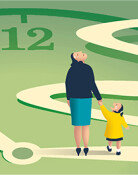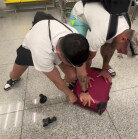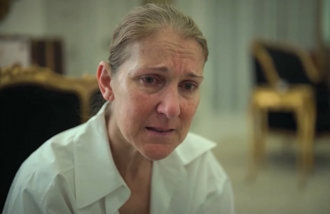Women and advanced degrees
Its not a recession but mancession, American men said at the peak of the global financial crisis in 2009. They said this because of a sharp rise in mens unemployment due to fewer jobs in finance, construction and manufacturing driven by the crisis and a steep fall in housing prices. The "mancession appeared to end early this year thanks to economic recovery, but American men were hit hard again in education. For the first time in U.S. history, more women earned masters or higher degrees than men.
According to the 2010 U.S. Census, the number of women holding a masters or higher degrees was 10.6 million among Americans age 25 and older, 100,000 more than that of men. This was the first time in U.S. history that the number of women with masters or higher degrees surpassed that of men with the same level of education since women surpassed men in the college entrance rate in the early 1980s and in college graduation in 1996. Mark Perry, an economics professor at the University of Michigan-Flint, said American women gaining higher education will help them keep their jobs in the next recession.
With more women obtaining advanced degrees than men, the number of men doing housework has also increased. As of late last year, 2 million American men, or one out of 15 American fathers, stayed home to do housework. Newsweek scoffed at this phenomenon, calling it not the Great Depression but the Great Humbling for men who used to go to work in a suit. There is one thing American men are unaware of, however. With highly educated single males becoming scarce in America compared to their female counterparts, the former is valued greatly. According to social psychologists specializing in sexual psychology, women who are successful in college, grad school and work are antsy due to hard-nosed men.
Despite all this, an American woman earn 77 cents for every dollar that a man makes. On this, many say this constitutes gender discrimination but the Associated Press cited the lack of women entering well-paying sectors such as banking, management, law, medicine and engineering. In Korea last year, the proportion of men and women in college graduation was 52 to 48 and 51 to 49 in masters degree graduates. Highly educated women should do more to achieve self-realization, promote national interests and the welfare of the people, and succeed in both love and marriage instead of letting their degrees go to waste.
Editorial Writer Kim Sun-deok (yuri@donga.com)
Headline News
- Medical school quotas expanded after 27 years by 1,509
- ‘Pension replacement rate of 44-45% is negotiable,’ says Lee Jae-myung
- 16 out of 20 food companies see cost ratio decrease in 1st quarter
- Oksana Chusovitina with 8 Olympics under her belt gets injured
- Real income effectively reduced amid inflation hikes







